Coronavirus: NHS in Wales 'as prepared as it can be'
- Published
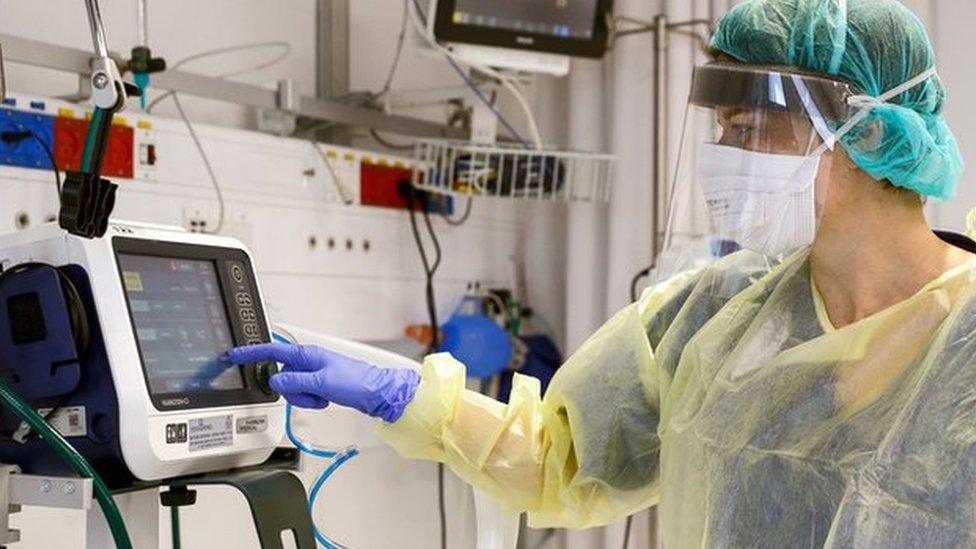
All medical ventilation requires close supervision from trained staff
The Welsh NHS is "as well prepared" as it can be to deal with the expected surge in coronavirus cases, the health minister has said.
Vaughan Gething said while he could not be "100% confident" the NHS would cope, all that could be done was being done.
He also said the majority of people were following restrictions to curb the spread of the virus.
But he said the Welsh Government was prepared to introduce tougher measures if people did not stay at home.
Mr Gething told the BBC Politics Wales programme a "judgement would have to be made of further measures" ahead of the Easter weekend.
It comes as UK Health Secretary Matt Hancock said exercise outside could be banned if people ignored the lockdown rules on staying at home and social distancing.
Mr Gething said the Welsh Government would "rather not" ban exercise outside the home, but it would be "a possibility" if more measures were needed.
He said the "handful of people" not following restrictions were "not just risking themselves but their families and their community".
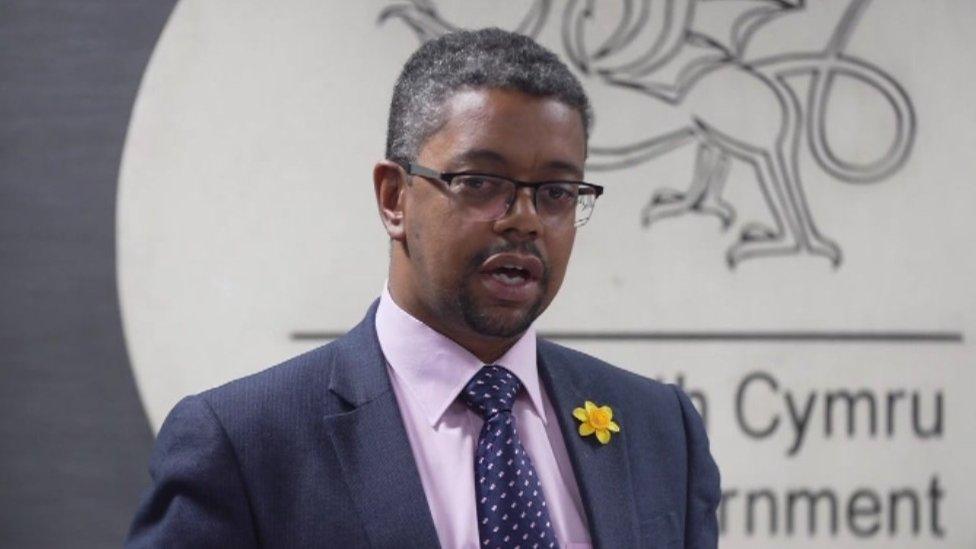
Mr Gething said it was difficult to forecast when the restrictions might be lifted
Mr Gething revealed that the Welsh NHS was effectively doubling in capacity to deal with the predicted increase in patients.
He said military planners would help to add 7,000 new hospital beds and more than double the number of ventilators.
He also announced 2,500 new staff would bolster the service, including retired professionals, GP locums and trainees.
Critical care capacity has more than doubled across Wales since the Covid-19 crisis took hold last month.
The government has said 48% of Wales' 350 critical care ventilated beds are occupied, half of those with coronavirus patients.
Hospitals could redeploy some of the 415 ventilators in other departments but the Welsh NHS is now buying a further 1,035 to care for the sickest patients.

Where are Wales' field hospitals?
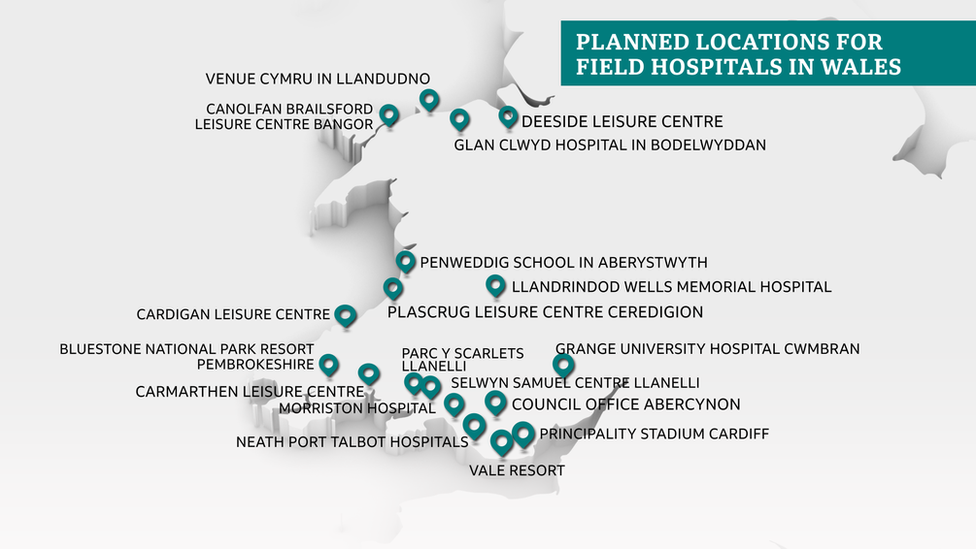
2,000 beds at Cardiff's Principality Stadium for Cardiff and Vale health board
350 beds at the new £350m Grange University Hospital in Cwmbran for Aneurin Bevan health board and 36 beds at St Joseph's private hospital in Newport
870 beds at Llandudno's Venue Cymru, Deeside Leisure Centre and Bangor University for Betsi Cadwaladr health board
900 beds at the Welsh Rugby Union's training headquarters in Hensol, Vale of Glamorgan, Ty Trevithick in Abercynon, and care home and community beds for Cwm Taf Morgannwg health board
660 beds at Llanelli's Parc y Scarlets rugby ground, Bluestone holiday village in Pembrokeshire, Llanelli's Selwyn Samuel Centre and Carmarthen's Werndale Hospital
1,400 beds at the Ospreys' Llandarcy Academy of Sport, Swansea's Bay Studios and Sancta Maria private hospital

Mr Gething said people returning to work in the NHS, coupled with the cancellation of routine surgery, gave staff the time "to redeploy and to retrain".
The minister said there "may be slightly different timing" in when the peak of coronavirus cases reaches different parts of Wales.
He said that when it came to lifting restrictions "no options were off the table", but there was no point in raising expectations due to the "risk of infection and re-infection" being significant.
"Lots of people want certainty but the honest position is that we can't forecast certainty months and months ahead into the future," he said.
"We have to make the best possible decisions on the information that we have and to be open and honest with the public about why we're making those choices and why we continue to ask them to stay at home."
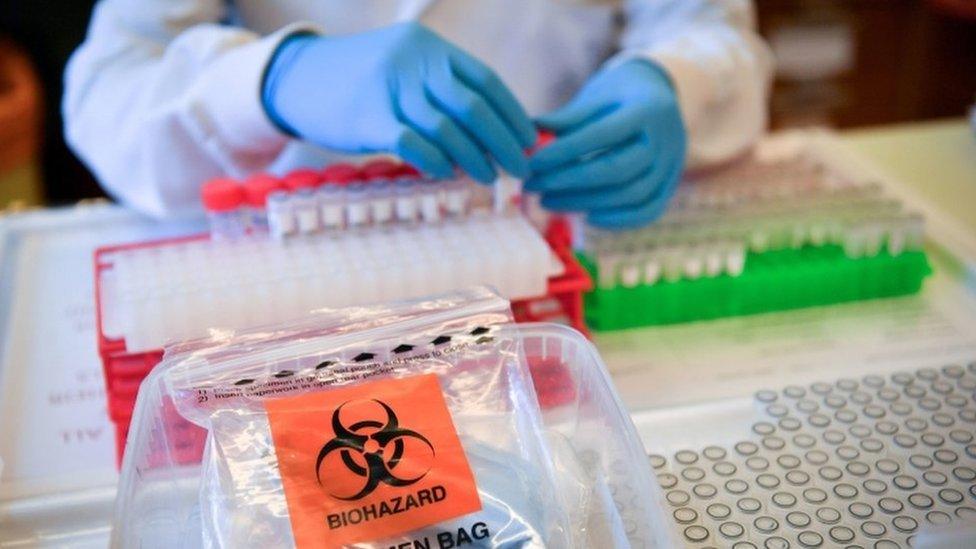
Samples being tested at the specialist virology centre at the University Hospital of Wales in Cardiff
The Welsh Government has been criticised for its speed in taking up offers of help from universities offering labs to ramp up testing.
Wales currently has the capacity to do 1,110 tests a day, with the aim being to reach 5,000 tests a day in a few weeks, before hitting up to 9,000 tests a day by the end of April.
Mr Gething said the government was "diversifying the range of people we're working with", including universities.
Thousands of extra beds have been set up in Wales for coronavirus patients
Another challenge for the Welsh NHS is increasing staff numbers further to look after those sickest patients on the newly acquired ventilators.
"Across Wales, training has been provided to upskill hundreds of staff who do not normally work in critical care," said Andrew Goodall, chief executive of NHS Wales.
"Extra areas have been identified in hospitals to provide more invasive ventilation to patients over and above the space normally available in critical care units.
"This is in addition to those areas identified as surge capacity for critically ill patients as part of existing plans to double capacity when needed."
- Published26 November 2020
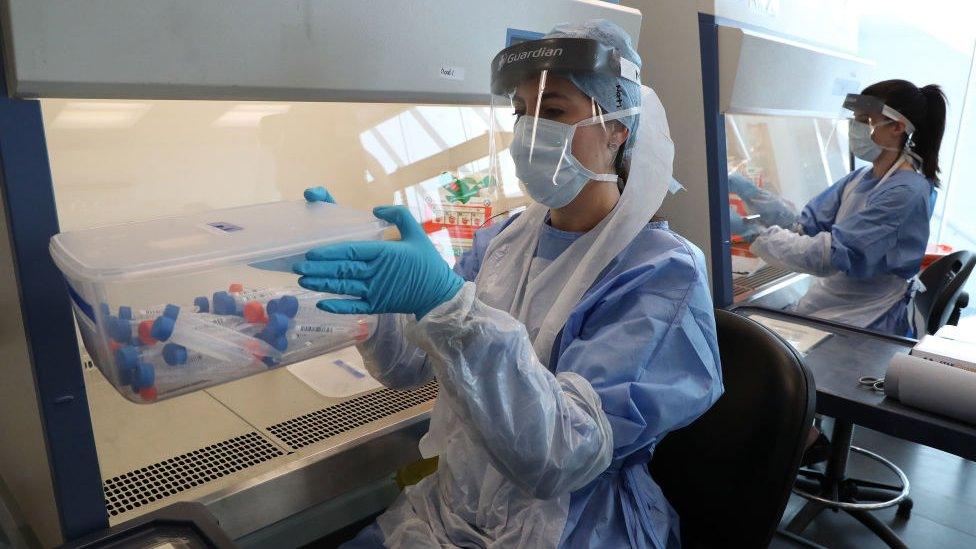
- Published4 April 2020

- Published4 May 2020
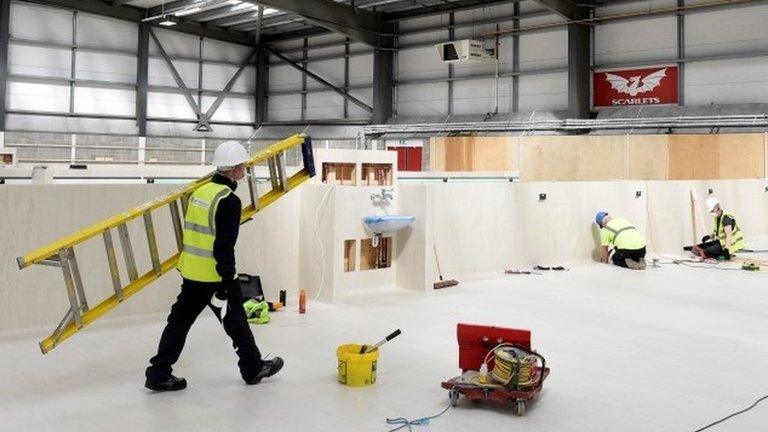
- Published11 May 2020
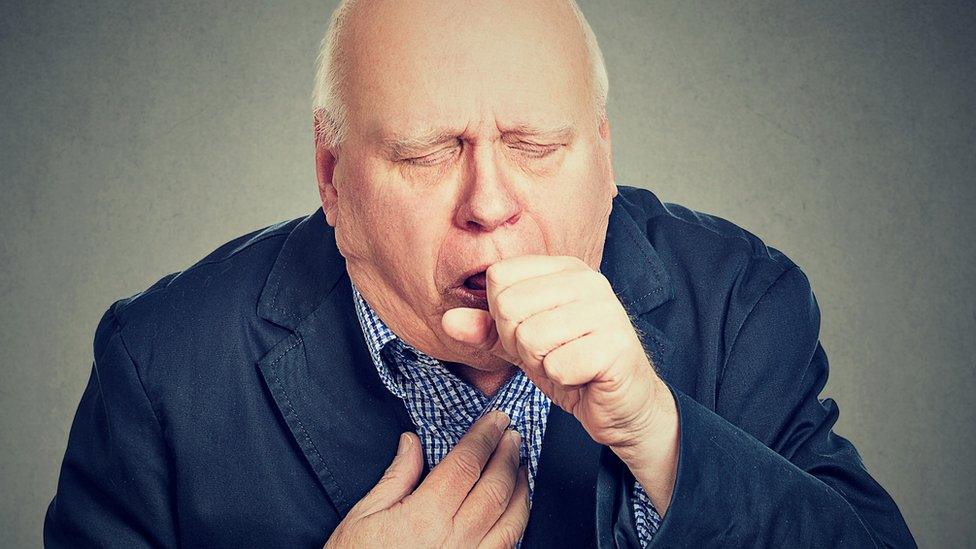
- Published1 April 2020
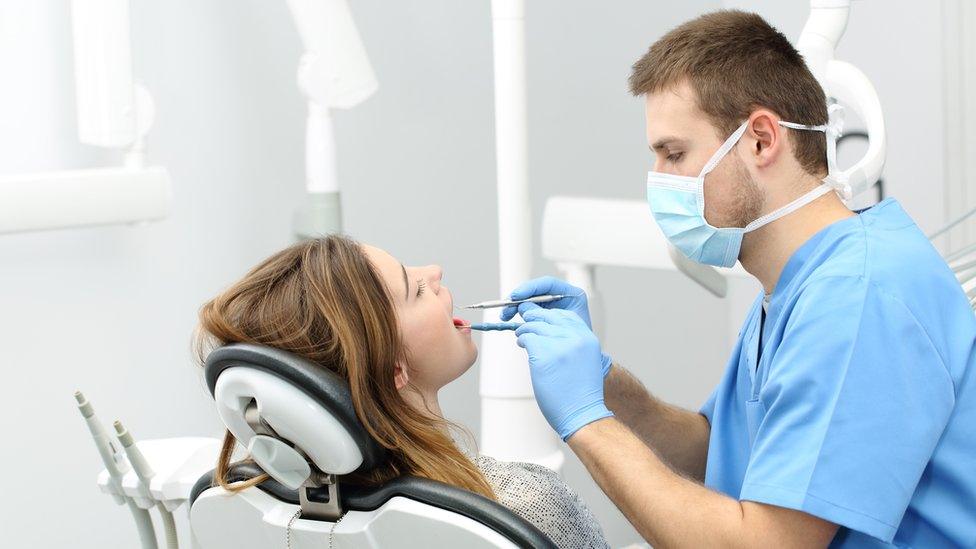
- Published1 April 2020

- Published1 April 2020
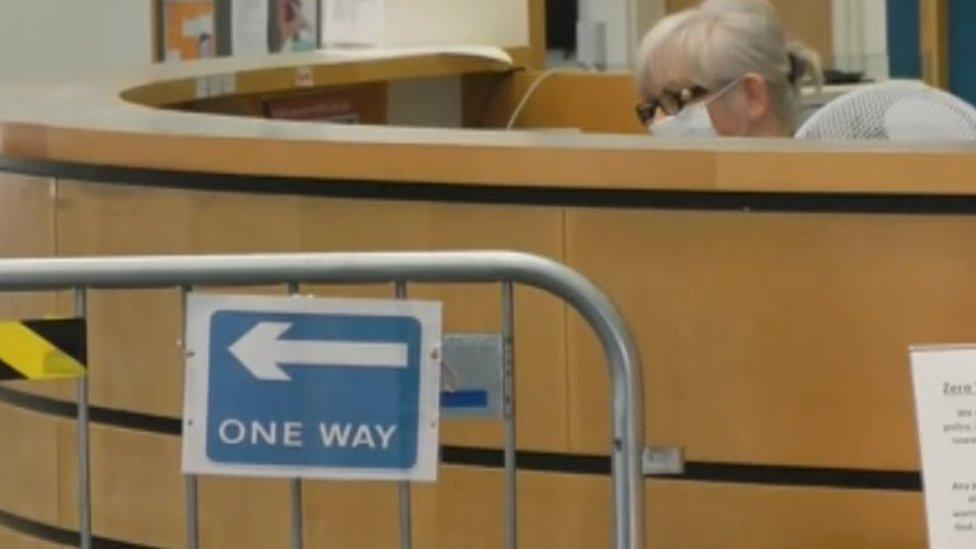
- Published1 April 2020
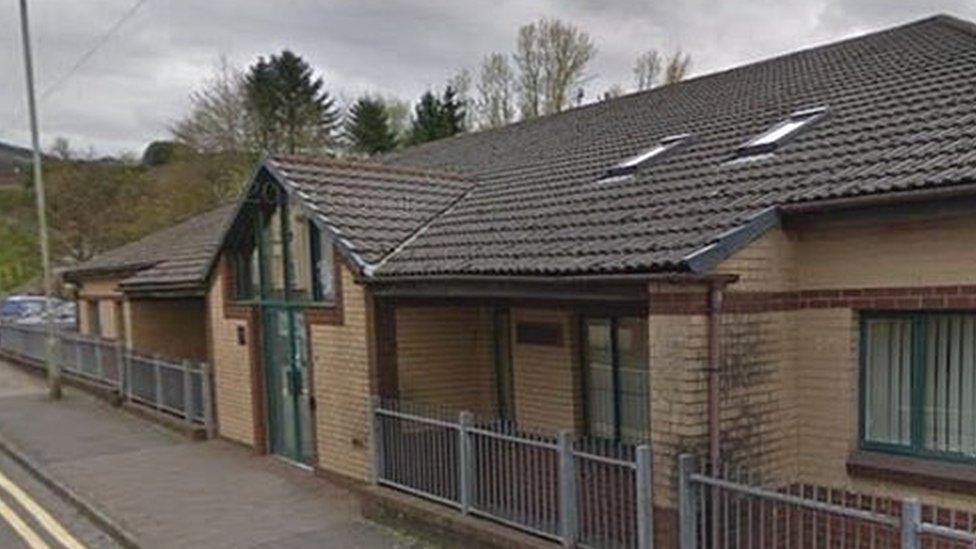
- Published2 April 2020
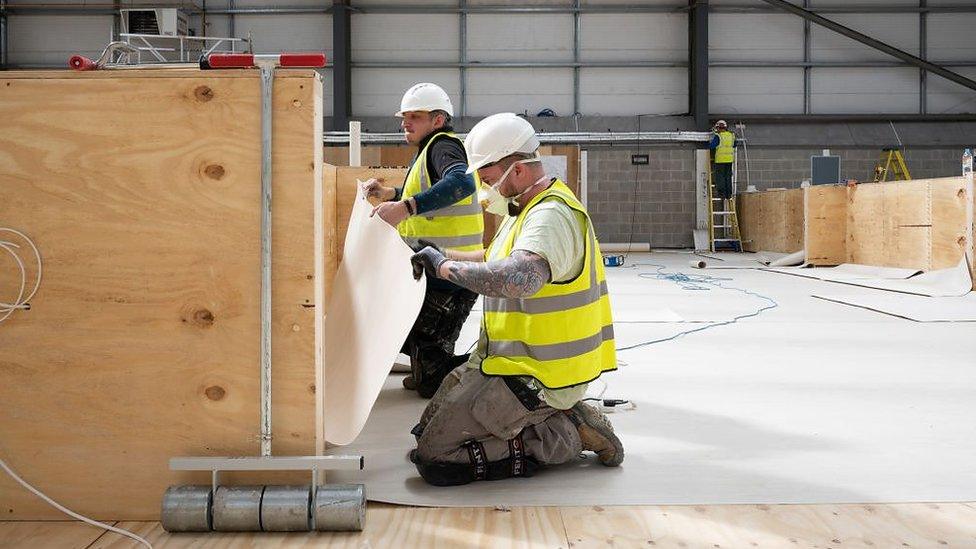
- Attribution
- Published2 April 2020
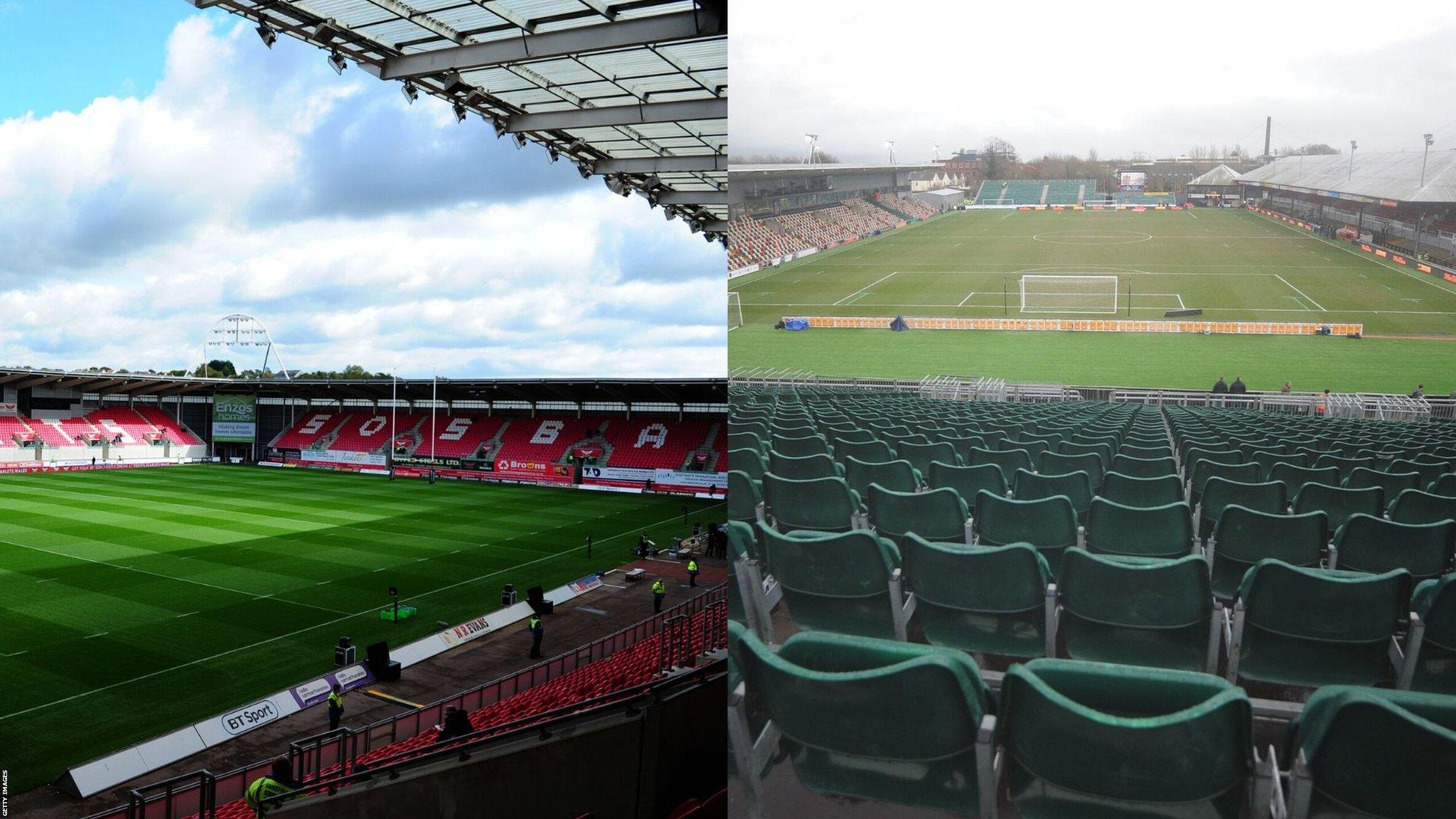
- Attribution
- Published27 March 2020
